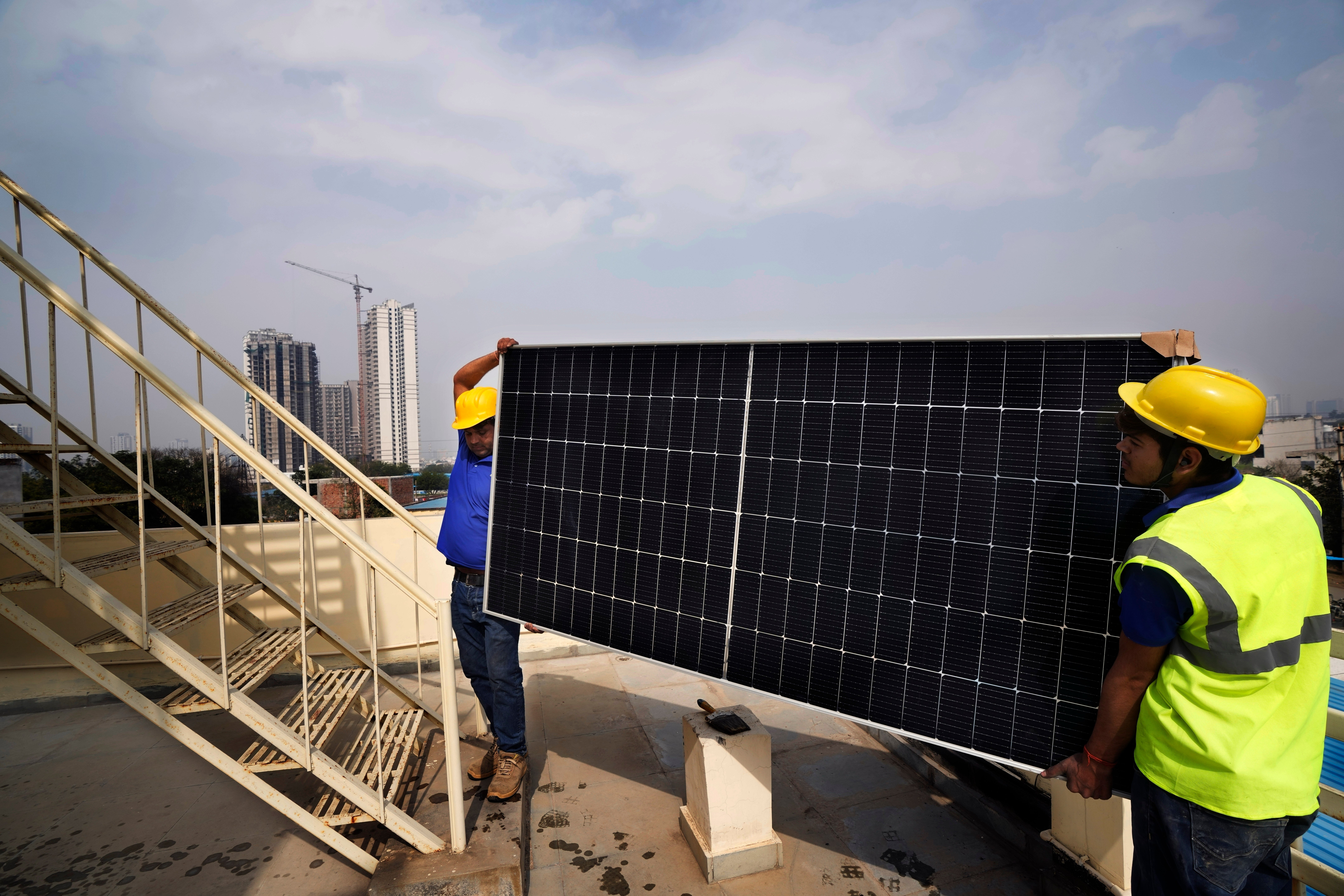
Britons could soon buy cheap solar panels which can be put on balconies, sheds and terraces to cut their energy bills.
The plan, using so-called plug-in solar modules which typically cut bills by 30 per cent in countries where they are already used, has been announced by the government as part of a broader plan to step up solar power access.
Using balconies for solar panels is already common in Germany, where 1.5 million homes use the technology. Locals have named it balkonkraftwerk, or balcony power plant.
Using solar panels this way is a lot cheaper than installing them on a roof, where scaffolding and hiring specialist workers means that even a modest eight-panel array will cost about £5,000.
It will also unlock solar power for many of Britain’s 5.4 million households which rent. Presently, only homeowners can opt to fit solar panels unless they agree a deal with their landlord. Even then, if they moved, they would lose their panels. The proposed system is portable.
This so-called plug-in power plant also means no expensive fitting is required. Instead, the panels are attached to an inverter, which steps up the voltage to the 240V used by your home’s mains supply. It is then attached by a regular plug.
To avoid electric shock, the inverters detect when they are unplugged and isolate the plug and its exposed electrical pins.

The government is investigating whether a similar safe system can be deployed in the UK.
Unlike a full rooftop solar system, no power can be sold back to the grid with plug-in panels. Instead, the aim is to cut electricity bills during the day from appliances like fridges, freezers and computers used by home workers.
The panels also probably won’t face upwards for the best power generation, since roofs are still the best for that.
But plummeting solar panel prices and climbing prices for having them fitted to a roof mean that balcony panels are now a more attractive option than in previous years.
Energy secretary Ed Miliband said solar “is one of the cheapest and quickest to build power sources we have”.
He added: “We will push ahead on a solar rooftop revolution, while tackling the barriers of planning, grid, supply chains and skills.”
In Germany, a pair of 400W panels could save €120 (£103) to €240 a year in electricity costs, according to consumer website Finanztip, which could be 30 per cent off a smaller flat’s usage, according to manufacturer estimates.
Panels can last 30 years if looked after well, and the €540 they can cost can be recouped in a few years, depending on usage.
Supreme Court to decide whether shutting down Michigan pipeline is a state or federal fight
Flint's still-unfinished lead pipe replacement serves as cautionary tale to other cities
Energy price cap scrap would save households hundreds, analysis finds
Using AC could drive your summer electric bill to an average of $186 a month
Fast food delivery firms to ramp up security checks to curb illegal working
Government demands investigation after Lindsey oil refinery owner collapses







